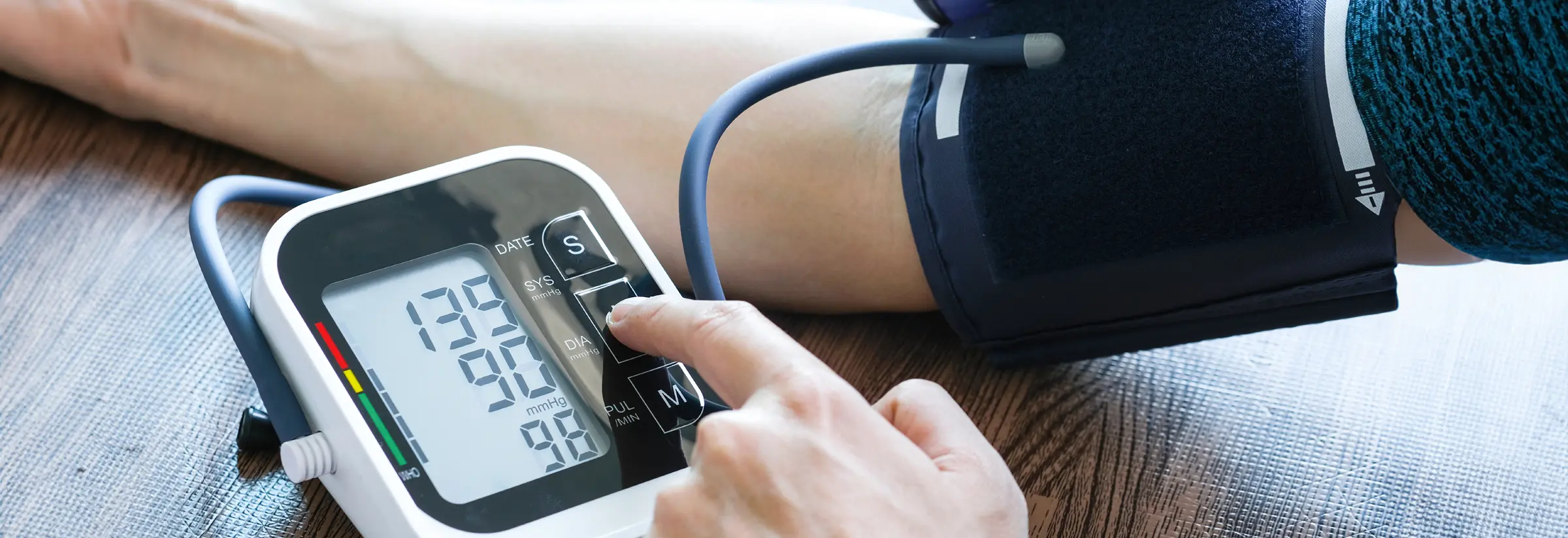
CARDIOLOGY
HIGH BLOOD PRESSURE – DIAGNOSIS AND PROMISING THERAPIES
High blood pressure, also known as arterial hypertension, is a common disease in which the pressure of the circulating blood against the walls of the arteries is permanently increased.
High blood pressure is often referred to as the “silent killer”, as many people have no obvious symptoms.
However, the following symptoms may be present:
- Headaches
- Chest pain
- Shortness of breath or shortness of breath
- dizziness
- ringing in the ears
- visual disturbances
However, these symptoms are non-specific and can also indicate other health problems. The diagnosis of high blood pressure is often made by chance.
In order to make a diagnosis, normal blood pressure measurements are observed. These can already indicate high blood pressure, as this begins at a defined value above 140/90 mmHg. As a rule, a 24-hour blood pressure measurement is useful to confirm the diagnosis and monitor the effectiveness of the therapy. The specialists at the ETHIANUM use a method that does not require a blood pressure cuff. This is not only extremely convenient, but also more accurate, as each heartbeat is assigned its own blood pressure value (tens of thousands per day instead of just a few dozen). Resting and exercise ECGs may also provide further signs of high blood pressure and show when and how the blood pressure response behaves. In addition, an echocardiogram can provide information about possible blood pressure-related heart damage such as hypertrophy or diastolic dysfunction. If there is a suspicion that changes have occurred in the blood vessels, a vascular ultrasound can help to identify the cause of high blood pressure. A targeted vascular ultrasound of the renal vessels can also provide evidence of so-called renovascular hypertension. Finally, laboratory tests are also carried out to help identify the cause of the hypertension.
Please note: High blood pressure is a chronic disease that must be treated for life. If left untreated, it can lead to serious health problems such as strokes, heart attacks, heart failure, and kidney damage. Early detection and effective treatment are crucial to minimise the risk of complications and maintain health. It is therefore important to have regular blood pressure checks and to follow medical recommendations closely.
Read compactly about the treatment options for high blood pressure.
CARDIOLOGY
TREATMENT OPTIONS FOR HIGH BLOOD PRESSURE
The treatment of high blood pressure aims to lower blood pressure and reduce the risk of cardiovascular disease and other complications. The following approaches are generally used:
- Lifestyle changes: The first steps of treatment often include lifestyle changes such as a healthy, low-sodium diet, regular physical activity, weight reduction when overweight, and limiting alcohol consumption.
- Medication: In many cases, medication is necessary to lower blood pressure. There are different classes of blood pressure medication, including diuretics, beta blockers, ACE inhibitors or ARBs, calcium channel blockers and alpha blockers. The choice of medication depends on individual factors and will be determined by us in consultation with you.
- Regular monitoring: People with high blood pressure should have their blood pressure checked regularly and work closely with their doctor to monitor the effectiveness of treatment and make adjustments if necessary.
- Avoiding risk factors: Avoiding smoking, stress management, and controlling concomitant diseases such as diabetes are important measures for controlling blood pressure.
